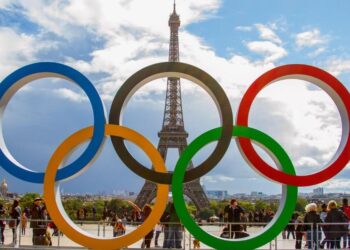
By Victor Gotevbe
Come July 1, 2018, Slovakia will take over the leadership of the Visegrad Group for another one year anchored on the agreed rotational presidency. The current holder of the rotating Visegrad presidency is Hungary.
The Visegrád Group, Visegrád Four, or V4 is a cultural and political alliance of four Central European states – the Czech Republic, Hungary, Poland and Slovakia, that are members of the European Union (EU) – for the purposes of advancing military, cultural, economic and energy cooperation with one another along with furthering their integration in the EU.
Historical background
The Visegrád Group was created on February 15, 1991 when Polish, Czechoslovakian and Hungarian leaders met in the Hungarian town of Visegrád to promote cooperation between the three States following the Warsaw Pact. In 1993, Slovakia separated from the Czech Republic and the Group became the “V4”.
The initial aims were to promote these States as candidates for membership of NATO and the European Union. They were accepted in 1999 and 2004, respectively. Since then, the V4 has continued essentially as an instrument for consultation and definition of shared position between the countries concerned in advance of European deadlines.
With over 65 million inhabitants, the Visegrad Group has a similar weight to that of France within the European Union, which gives it 12.46% of the votes within the Council of the European Union. If counted as a single nation state, the Visegrád Group would be the fifth largest economy in Europe and the 12th largest in the world
All four nations in the Visegrád Group are high-income countries with a very high Human Development Index. V4 countries have enjoyed more or less steady economic growth for over a century. In 2009, Slovakia adopted the euro as its official currency and is the only member in the Group to do so.
The functioning of the Visegrad Group
The V4 works on an informal intergovernmental model and takes decisions by consensus. It does not have any permanent structures. The group’s work is centred around a presidency which rotates on an annual basis and regular meetings at various levels: Heads of State, Prime Ministers, Ministers of Foreign Affairs, Ministers of State for European Affairs, technical ministries, etc.
The meeting agenda is set by the presidency and is generally governed by the key moments of the European calendar (European Council meetings, informal summits, etc.). The high-level meetings are most often accompanied by the adoption of shared positions.
The V4 occasionally extends its work to other States, both EU and non-EU members, in formats known as “V4+”, depending on the topics on the agenda and/or the European and international priorities of the Presidency.
What the V4 Presidency may mean to Slovakia

Slovakia is the smallest, but considerably have a powerful V4 economy with a GDP of USD $158.428 billion total, 70th in the world. Czechoslovakia was the most developed country of the Eastern Bloc when Communism ruled in Europe. The first years after the revolution in 1989 saw a stagnation. At the end of the 1990s, the economy grew and attracted a lot of investment from abroad. Slovakia is a country which produces the most cars per capita in the whole world. There is more than 1 million cars produced in Slovakia every year.
The Visegrad countries have been a hard nut to crack when it comes to sharing the burden of the refugee crisis. Even Mr. Peter Pellegrini, Prime Minister of Slovakia shares the opinion that the mandatory quotas were not fair to Slovakia and has stressed there were other ways Slovakia could contribute citing the project under which Slovakia hosts asylum-seekers while they await the decisions on their applications in Austria.
Slovakia has showcased the Gabčíkovo camp near Bratislava as an example that intergovernmental solutions can work better than the European Commission’s relocation system based on mandatory quotas.
It is believed that as Slovakia is the incoming presidency, the Visegrad Four will further help improve the relations between the V4 and the Commission.





